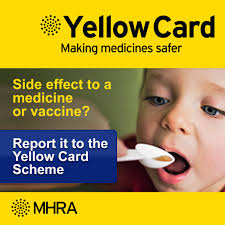In my last article, Hello World! the merits of integrating Eastern and Western medicine were discussed, particularly, to help reduce the burden on the NHS of chronic conditions and minimising adverse drug reactions. This article continues by looking more closely at chronic conditions and adverse drug
reactions (ADRs) and how these may be managed. The hope is that this will be informative and helpful to readers.
A chronic condition is a persistent health condition or disease lasting longer than 3 months, such as heart disease, cancer, pain conditions, diabetes, stroke, dementia and arthritis. Although these are common, unpleasant and costly, many are preventable and linked to lifestyle. They take up 70% of the NHS budget. Often patients are also taking
medications long term, which can cause side effects.
One cause of chronic health conditions is stress. Stress changes the way our genes are switched on or off (expressed). Studies have shown, that when comparing the gene expression of people who are stressed with those who are relaxed, stressed people have more pro–inflammatory genes switched on and more anti- inflammatory genes switched
off. Those who are relaxed have more anti-inflammatory genes switched on and more pro-inflammatory genes switched off. We know that many chronic health conditions start with inflammation and that pain signals are increased when we have inflammation.
It stands to reason that by reducing our stress, we can reduce inflammation and in doing so, reduce our risks of chronic health conditions as well as pain. In turn we can reduce our need for medications, thus protecting us from their side effects; for example, long
term use of non–steroidal anti-inflammatory drugs (NSAIDs) more than doubles the risk of renal cell (kidney) carcinoma.
The good news is that there are natural, healthy and enjoyable ways of reducing stress levels, and it is important to take time out for activities like yoga, regular walking, exercising at a local fitness club, an art class, mindfulness, massage or regular reflexology treatments well known to promote relaxation, reduce stress, improve sleep and mood or indeed a combination of these. It is also helpful to reduce caffeine, alcohol
and nicotine, as well as pro-inflammatory foods such as sugar which lessens a person’s ability to cope with stress:
“it is perhaps no coincidence that stressed spelled backwards is desserts.”
It is always important to discuss your medications with your GP and if you are taking any medications long term, have regular liver and kidney function tests and have your medicines reviewed at least annually to check whether you still need to be taking them.
If you are referred to a hospital or consultant for specialist care, it is your legal right as a patient to choose which hospital in England to go to as well as choose which consultant led team will be in charge of your treatment, to ensure you receive the best possible care. For example, for Endometriosis care, a BSGE (British Society of Gynaecological Endoscopy) accredited centre will be the best option, such as St Marys in Manchester.
 If you believe you are suffering any side effects from a medication, you can now fill in a yellow card on the government website. This is vital in enabling the drug regulatory agency to monitor safety of healthcare products and minimise risks for patients. If in doubt whether to report a suspected adverse drug reaction (ADR) the agency prefers that you complete a Yellow Card.
If you believe you are suffering any side effects from a medication, you can now fill in a yellow card on the government website. This is vital in enabling the drug regulatory agency to monitor safety of healthcare products and minimise risks for patients. If in doubt whether to report a suspected adverse drug reaction (ADR) the agency prefers that you complete a Yellow Card.
The agency are especially interested in monitoring any effects in
• children because their metabolism isn’t fully developed and many drugs routinely used in children are not tested for their use in children.
• people over 65, because they may be more susceptible to developing
reactions as they may metabolise medicines less effectively and be more
sensitive to their effects.
• Drug-drug interactions because side effects can increase with the number of medications being taken
• Delayed drug side effects because these can occur months or even years
after drug exposure, eg cancers. Reye’s syndrome was associated with
aspirin eight decades after it was first marketed.
• Vaccines & Biological Medicines (such as antibodies, blood products or gene therapy). These vary from batch to batch and brand and must be monitored.
• Herbal Remedies require monitoring too as only some are actually licensed and it is important to ensure their safety. Also, herbal medicines may interact with conventional medicines; St Johns Wort affects many other medicines, such as the birth control pill which is less effective with St Johns Wort.
• E-cigarette products are now also being monitored for any side effects by the agency.
The yellow card can be completed online on the government website or by telephone or via the downloadable app on a mobile device.
https://yellowcard.mhra.gov.uk/the-yellow-card-scheme/
The MHRA may be contacted by phone on 0808 100 3352 (10am to 2pm Monday-Friday only)
By taking the time and trouble to fill in a yellow card you will be
providing valuable data which can help improve the drug labelling and
how a drug is prescribed.
Tracy is a full time holistic therapist passionate about helping you improve your health. She brings the knowledge from her research career in Biomedical Genetics into her practice. She discovered a gene
responsible for pain sensation and specialised in the genetics of drug safety and metabolism, for personalised medicine. Her main treatment is Reflexology which is complementary to conventional medicine.
Tracy Mills BSc (Hons, Genetics) MFHT, MAR, BFRP
www.toptotoetreatments.co.uk
www.facebook.com/toptotoetreatments
Reflexology, Bach Flower Remedies, Indian Head Massage
Treatment rooms in Bollington, Prestbury and mobile to your home.
Tel: 07811 153380
